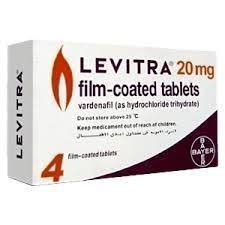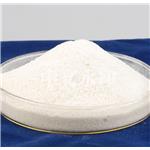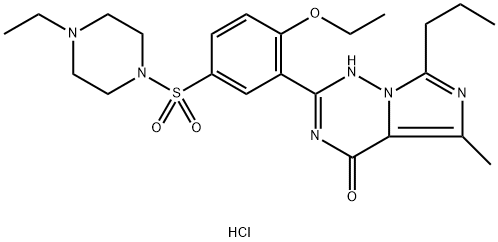Medical use and Precautions of Vardenafil hydrochloride
Oct 9,2019
Vardenafil (Levitra) hydrochloride is an oral therapy for the treatment of erectile dysfunction. It is a selective inhibitor of cyclic guanosine。 It is used to treat male sexual function problems (impotence or erectile dysfunction-ED). In combination with sexual stimulation, vardenafil works by increasing blood flow to the penis to help a man get and keep an erection.

Medical use
Vardenafil's indications and contraindications are the same as with other PDE5 inhibitors; it is closely related in function to sildenafil citrate (Viagra) and tadalafil (Cialis). The difference between the vardenafil molecule and sildenafil citrate is a nitrogen atom's position and the change of sildenafil's piperazine ring methyl group to an ethyl group. Tadalafil is structurally different from both sildenafil and vardenafil. Vardenafil's relatively short effective time is comparable to but somewhat longer than sildenafil's.
Beyond its indications for erectile dysfunction, vardenafil hydrochloride may be effective in the treatment of premature ejaculation, where it may significantly increase the time from penetration to ejaculation.
Precautions
Before taking vardenafil, tell your doctor or pharmacist if you are allergic to it; or if you have any other allergies. This product may contain inactive ingredients, which can cause allergic reactions or other problems. Talk to your pharmacist for more details.
Before using this medication, tell your doctor or pharmacist your medical history, especially of: heart problems (such as heart attack or life-threatening irregular heartbeat in the past 6 months, chest pain/angina, heart failure), stroke in the past 6 months, kidney disease (dialysis), liver disease, high or low blood pressure, a severe loss of body water (dehydration), penis conditions (such as angulation, fibrosis/scarring, Peyronie's disease), history of painful/prolonged erection (priapism), conditions that may increase the risk of priapism (such as sickle cell anemia, leukemia, multiple myeloma), eye problems (such as retinitis pigmentosa, sudden decreased vision, NAION), bleeding disorders, active stomach ulcers.
Side Effects
Headache, flushing, or dizziness may occur. Vision changes such as increased sensitivity to light, blurred vision, or trouble telling blue and green colors apart may also occur. If any of these effects persist or worsen, tell your doctor or pharmacist promptly.
To reduce the risk of dizziness and lightheadedness, get up slowly when rising from a sitting or lying position.
Remember that your doctor has prescribed this medication because he or she has judged that the benefit to you is greater than the risk of side effects. Many people using this medication do not have serious side effects.
Sexual activity may put extra strain on your heart, especially if you have heart problems. If you have heart problems and experience any of these serious side effects while having sex, stop and get medical help right away: severe dizziness, fainting, chest/jaw/left arm pain, nausea.
- Related articles
- Related Qustion
- Vardenafil Hydrochloride: Pharmacodynamics and Methods of Preparation Feb 19, 2024
Vardenafil hydrochloride effectively treats erectile dysfunction by enhancing cGMP levels, offering higher potency and tolerability with a well-established synthesis process.
- Vardenafil hydrochloride: Pharmacokinetics, Mechanism and Synthesis Apr 26, 2023
Vardenafil hydrochloride is an oral medication that is typically used to treat erectile dysfunction (ED) in men, which helps enhance blood flow to penile tissue and improve erectile function.
A high level of creatinine is not a direct cause of symptoms, and patients with above-normal levels of creatinine may notice no change. Symptoms associated with high creatinine are most often caused by an underlying illness that affects kid....
Oct 8,2019Biochemical EngineeringHydroquinone exists in stems, leaves and juices of many plants in nature, is a chemical substance with a wide range of uses with major uses as a reducing agent in black and white photographic developing solutions.....
Oct 9,2019DrugsVardenafil hydrochloride
224785-91-5You may like
Vardenafil hydrochloride manufacturers
- Vardenafil hydrochloride
-

- $10.00 / 1ASSAYS
- 2024-04-26
- CAS:224785-91-5
- Min. Order: 1ASSAYS
- Purity: 99%
- Supply Ability: 1 ton
- Vardenafil Hydrochloride
-

- $70.00 / 1kg
- 2024-04-26
- CAS:224785-91-5
- Min. Order: 1kg
- Purity: 99.99%
- Supply Ability: 1000kg
- Vardenafil hydrochloride
-

- $1195.00 / 1kg
- 2024-04-26
- CAS:224785-91-5
- Min. Order: 1kg
- Purity: 99.99%
- Supply Ability: 2 tons




